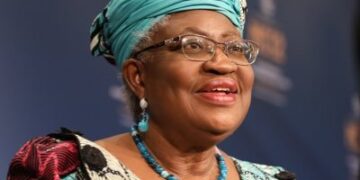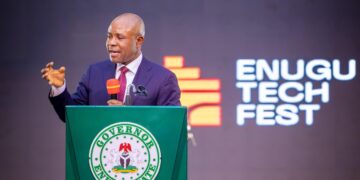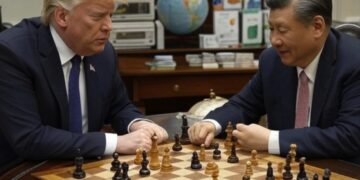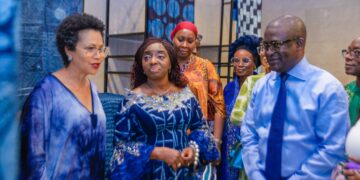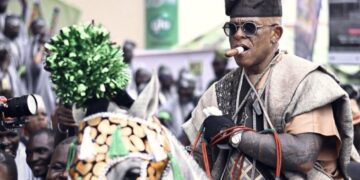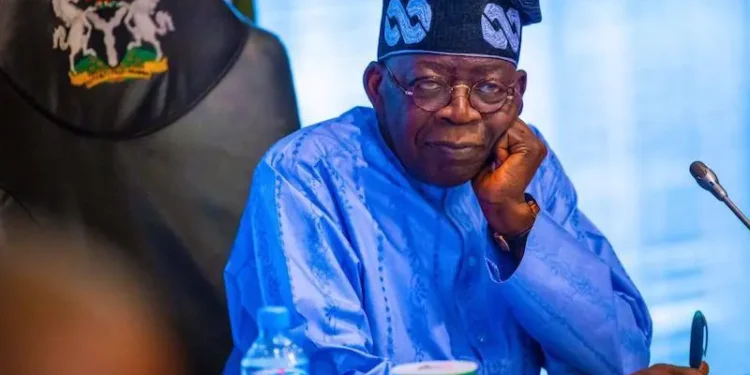The democratic ideals that many Nigerians, including Sen. Bola Ahmed Tinubu, fought for in the 1990s were rooted in the principles of freedom, fairness, and the right to dissent. Those were turbulent years, marked by the struggle against military rule, where citizens demanded a system that allowed open discourse, political pluralism, and the protection of fundamental rights. Fast forward to 2025, and the question looms large: Is this the democracy Tinubu and others risked their lives for? The increasing attacks on opposition groups, exemplified by the disruption of coalition meeting venues in Kaduna, Lagos, and other parts of Nigeria, suggest a troubling departure from those ideals. As we look toward the 2027 elections, the actions of the ruling All Progressives Congress (APC) and the state of Nigeria’s democratic institutions raise serious concerns about the future. The opposition and Nigerians must act decisively to safeguard the nation’s democracy.
The Growing Threat to Democratic Space
Recent reports of disruptions targeting opposition coalition meetings are not isolated incidents but part of a disturbing pattern. In Kaduna, Lagos, and other regions, opposition gatherings have been met with intimidation, harassment, and, in some cases, outright violence. These actions, often linked to supporters of the ruling party, signal a calculated effort to stifle dissent and weaken political opposition. Such tactics undermine the very essence of democracy—freedom of association and the right to organize politically.
This is not the democracy Sen.Tinubu championed during the dark days of military rule. As a key figure in the National Democratic Coalition (NADECO), Tinubu fought for a Nigeria where citizens could freely express their views and hold the government accountable. Yet, under his presidency, the APC’s apparent intolerance for opposition activities betrays those principles. The use of state machinery to suppress dissent, from the harassment of coalition leaders to the weaponization of security forces against political opponents, paints a grim picture of a democracy in decline.
The Dangers Ahead of 2027
If these trends continue unchecked, the 2027 general elections risk being a hollow exercise, devoid of the fairness and transparency that define true democracy. The systematic erosion of independent institutions—electoral bodies, the judiciary, and the media—further compounds these dangers. Reports indicate that key government institutions have been compromised, with allegations of partisan appointments and interference in judicial processes. The Independent National Electoral Commission (INEC), once a beacon of hope for free and fair elections, faces growing scrutiny over its independence. Similarly, the media, a critical pillar of democracy, is under pressure, with journalists reporting intimidation and restricted access to information.
The implications are dire. A democracy where opposition voices are silenced and institutions are manipulated cannot deliver the progress Nigerians deserve. Beyond 2027, a continuation of this trajectory risks entrenching a one-party state, where power is concentrated in the hands of a few, and dissent is equated with disloyalty. This is not the Nigeria that Tinubu and others envisioned when they stood against tyranny decades ago.
What the Opposition and Nigerians Must Do
The opposition and Nigerians at large cannot afford to remain passive in the face of these challenges. The time for bold, unified action is now. First, opposition leaders must come together under a strong coalition and demand accountability. A starting point would be to convene an international press conference, as suggested, to draw global attention to the shrinking democratic space in Nigeria. This platform would allow coalition leaders to articulate their concerns, expose the attacks on opposition activities, and rally international support for Nigeria’s democracy.
Second, the opposition should organize a nationwide warning protest, reminiscent of the mass actions against President Goodluck Jonathan’s administration. Such a protest, led by coalition leaders and civil society, would send a clear message to the APC-led government: Nigerians will not tolerate the erosion of their democratic rights. A “Tinubu Must Go” campaign, while provocative, could galvanize public sentiment by highlighting the dangers of unchecked power and the need for a return to democratic principles.
Third, Nigerians must demand the restoration of institutional integrity. This includes advocating for reforms to ensure INEC’s independence, protecting judicial autonomy, and safeguarding press freedom. Civil society organizations, student groups, and professional associations should mobilize to hold the government accountable, using legal and peaceful means to challenge abuses of power.
Finally, the opposition must present a united front and a clear alternative vision for Nigeria. Infighting and fragmentation have historically weakened opposition efforts. By coalescing around shared goals—economic recovery, social justice, and democratic renewal—the opposition can inspire hope and mobilize voters ahead of 2027.
The democracy Sen.Bola Ahmed Tinubu fought for was one where every voice mattered, where power was contested through ideas, not intimidation. Today’s reality falls far short of that vision. The attacks on opposition gatherings, the weakening of institutions, and the growing climate of fear threaten to unravel Nigeria’s democratic gains. If Tinubu’s legacy as a defender of democracy is to endure, his administration must reverse course and uphold the principles he once championed.
For the opposition and Nigerians, the path forward is clear: unite, resist, and rebuild. The 2027 elections are not just a contest for power but a battle for the soul of Nigeria’s democracy. By acting decisively—through protests, advocacy, and coalition-building—Nigerians can reclaim their democratic rights and ensure that the sacrifices of the past are not in vain. The question remains: Will we rise to the challenge, or will we allow democracy to wither? The choice is ours.







